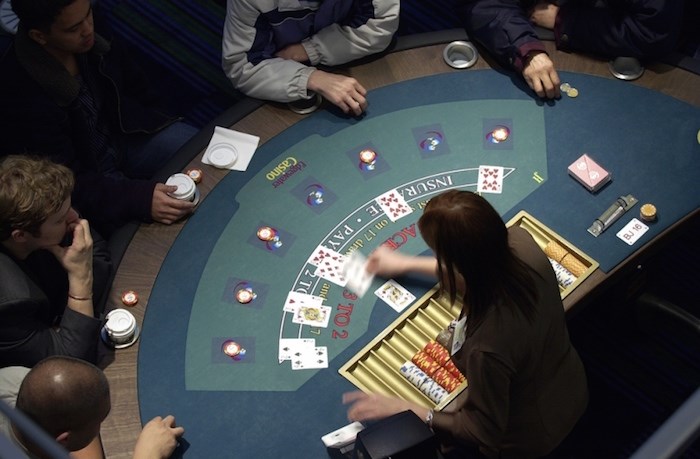 Peter German’s “Dirty Money” report to government said some Metro Vancouver casinos “unwittingly served as laundromats for the proceeds of crime.” Photo Dan Toulgoeet
Peter German’s “Dirty Money” report to government said some Metro Vancouver casinos “unwittingly served as laundromats for the proceeds of crime.” Photo Dan Toulgoeet
The provincial government should move casinos to cashless gaming systems as seen in other countries to cut money laundering, Union of B.C. Municipalities (UBCM) delegates voted Sept. 26.
A motion from Delta said there’s credible evidence linking B.C. casinos to organized crime and large-scale money laundering but added, “The current regulatory and monitoring system has failed to stop money fraud in B.C. casinos.”
The approved resolution requested Victoria take immediate steps to address money laundering in casinos and to undertake an evaluation of cashless gaming systems, whereby account-based card technologies are used to verify player identity and track gambling transactions on all gaming devices.
Earlier this week, Simon Fraser University School of Public Policy Prof. Maureen Maloney said a key to combating money laundering is ensuring governments, regulators and industry are sharing data across Canada.
Maloney authored the report Combating Money Laundering in B.C. Real Estate. Researchers found $46.7 billion was laundered through Canada’s economy in 2018.
Of that, Alberta had $10.2 billion, Ontario $8.2 billion and B.C. $6.3 billion.
And, that, Finance Minister Carole James said, has added five per cent to the price of B.C. residences.
James said that translates to an average price boost of $32,000 for a condominium, $39,000 for a townhouse and $71,000 for a detached house.
The UBCM resolutions committee noted membership in 2011 endorsed a resolution calling for changes to provincial gaming governance in part to address concerns that criminals were using casinos to launder illegally gained money.
In May 2019, the provincial government announced that it would hold a public inquiry into money laundering. The inquiry is expected to examine areas such as real estate, gaming, financial institutions and corporate and professional sectors.
“It is unclear if the use of cashless gaming systems will be included in the inquiry,” the committee said. “A final report is expected by May 2021.”


